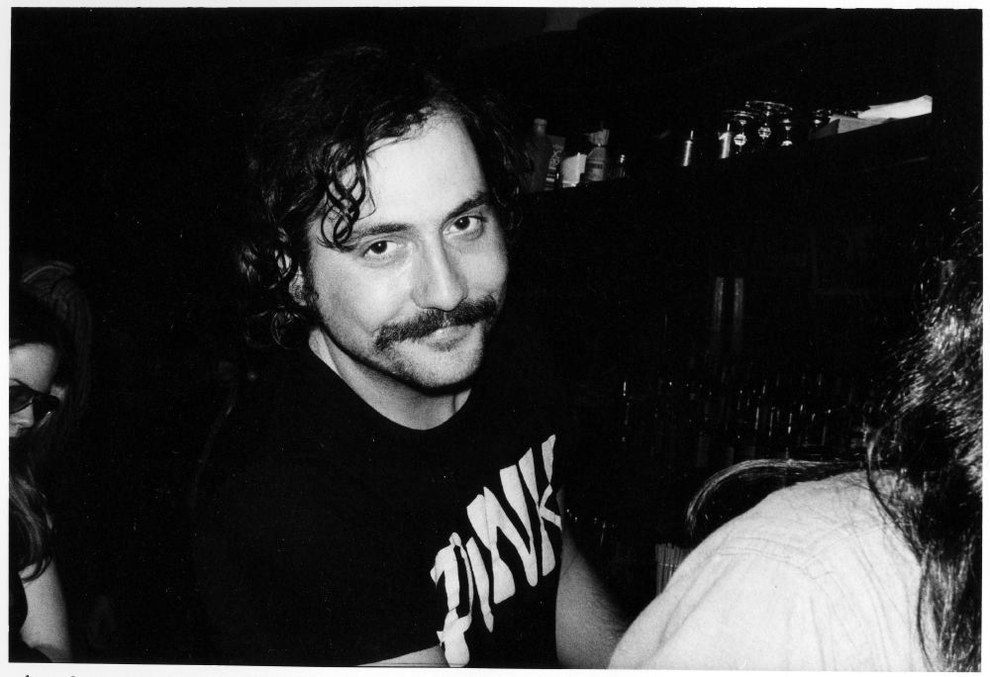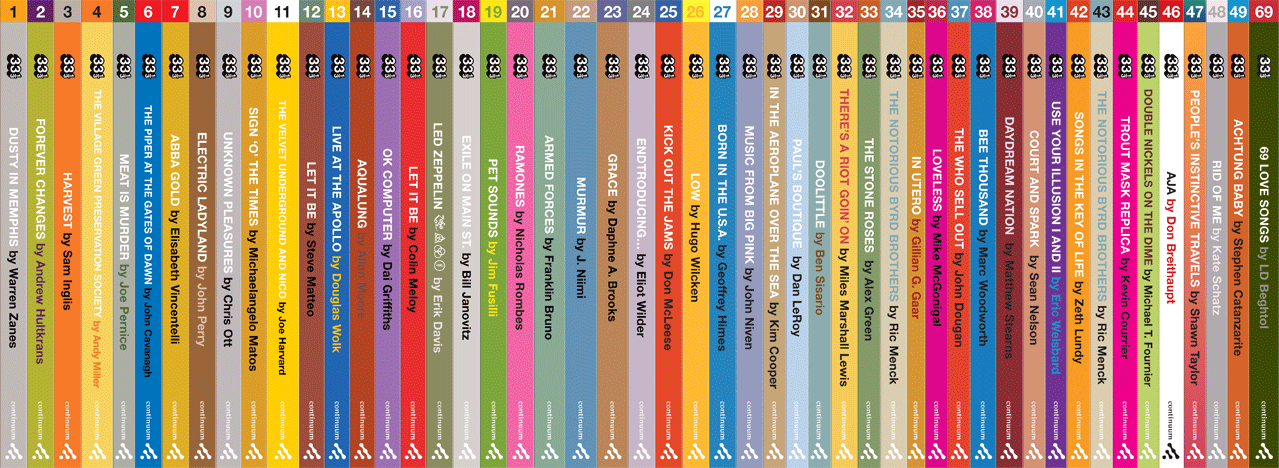 |
| The record shelves of legendary BBC Radio 1 DJ John Peel. |
When we think of doing audio, our mind most readily thinks of music, though, as our readings for last class suggested, sound can be a part of our conception of poetry, and sound can be a critical component of our analysis of film (which we'll be discussing next week) as well.
Much of our reading for today will be devoted to music criticism, but I wanted to start you off with a brief excerpt from French composer and sound theorist Michel Chion's book Audio-Vision: Sound on Screen, that I think is an excellent introduction to the practice of critical listening:
- "The Three Listening Modes" [PDF]
While all three modes are important to understanding and analyzing sound, I think that there's real room for individual expression once we move beyond the causal and semantic modes to reduced listening. You might want to consider how these three approaches are used in the readings that will follow.
 |
| Lester Bangs, patron saint of rock critics, in 1977. |
In terms of historically significant rock critics, there's perhaps no better place to start than the late, great Lester Bangs. During his tenure at Rolling Stone and Creem from the late 60s to the mid-70s, and later as a freelance writer, Bangs tirelessly championed artists he deemed worthy — effectively conceptualizing the genre of punk rock, and later advocating for heavy metal and new wave acts — in a rapturous, free-wheeling style that displayed considerable musical knowledge along with an admiration for authors like Jack Kerouac, William S. Burroughs, and Hunter S. Thompson. Here's a taste of his ornery style:
You'll be reading a few excerpts from Psychotic Reactions and Carburetor Dung: The Work of a Legendary Critic: Rock'N'Roll as Literature and Literature as Rock 'N'Roll, a posthumous collection of Bangs' best assembled by Greil Marcus in 1988: [PDF]
- "Kraftwerkfeature" (on Krautrock pioneers Kraftwerk)
- "The Greatest Album Ever Made" (on Lou Reed's notorious Metal Machine Music)
- "A Reasonable Guide to Horrible Music" (a brief list-piece on noise music)
- "Rattled by the Rush" [link]
Greil Marcus, perhaps America's most venerable living rock critic, has been writing for nearly 50 years for magazines as diverse as Rolling Stone, Creem, The Village Voice, Interview, The Believer, and Artforum. He's also the author of a number of ambitious, critically-lauded books — Mystery Train: Images of America in Rock 'n' Roll Music, Lipstick Traces: A Secret History of the 20th Century, and The Shape of Things to Come: Prophecy in the American Voice — which cast broad cultural histories of our nation, drawing on music, literature, history, and more.
Here are a pair of short pieces from his "Days Between Stations" column for Interview in the 1990s:
- "Screams from the Basement" (on PJ Harvey's Rid of Me, 1993) [link]
- "The Sound of Being Watched" (on DJ Shadow's Endtroducing, 1997) [link]
And a few older pieces from Rolling Stone:
 |
| The first 50 (of 106 total) books in the 33 1/3 series. I've read 22 of these and 28 altogether. Currently, I'm currently reading my 29th (on The Who Sell Out) (click to enlarge). |
As our examples above suggest, there's a tension in music criticism — as in many other fields — between the maximal and the minimal: talented authors who are capable of writing book-length explorations of complex topics banging their heads up against the strictures of popular journalism (where 300 word reviews are considered a luxury). One of my favorite venues for the former over the past decade has been the 33 1/3 series, which has released more than a hundred books on important albums from ABBA to Neil Young, which address their subjects with startling insightfulness through a diverse array of approaches.*
We'll take our final readings from Marc Woodworth and Ally-Jane Grossan's recent volume, How to Write About Music: Excerpts from the 33 1/3 Series, Magazines, Books and Blogs with Advice from Industry-leading Writers, which, among other things, contains exemplary reviews of very contemporary albums you're more like to be familiar with. I've also included a few bits of advice and a useful writing prompt from the book: [PDF]
- "Expert Advice from Our Writers"
- Ann Powers on Daft Punk's Random Access Memories
- Jim DeRogatis on Simon and Garfunkel's Bookends
- Lou Reed on Kanye West's Yeezus
- "Writing Prompt: The Blind Review"
- "The Five Things Every Music Writer or Editor Needs"
- Tavi Gevinson on Taylor Swift
- Marty Davis on Black Flag
- Carl Wilson on Céline Dion
* I've submitted two proposals to the series' open call over the past decade — one on Elliott Smith's XO, the other on John Cage and David Tudor's Indeterminacy. Neither were chosen.
º º º
As was the case with our last post, file away this very detailed technical Glossary of Jazz and Popular Music Terminology from Wikipedia for future use.
Also, as a very interesting footnote to our discussions of the evolution of discourses, fields, and canons over time, here's a fascinating piece from Ratter about newspapers' early flailing attempts to describe rap: "What is 'Rap Music'?"


No comments:
Post a Comment